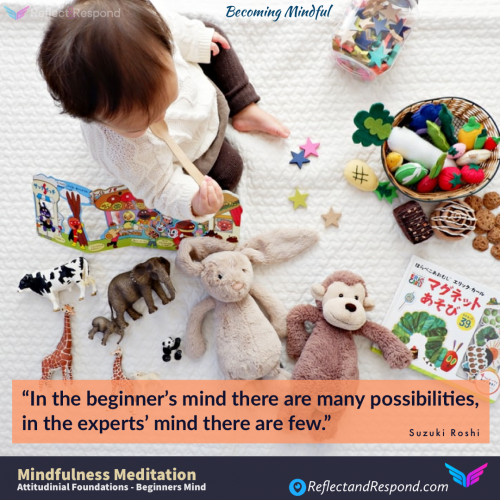We have never been in this moment before. If we can just be present, we can appreciate wonders that are happening around us all the time. A breeze flowing, a gaze, meeting someone, a hug, looking or perhaps stopping and smelling a flower.
There are Seven attitudinal foundations of MINDFULNESS described by Jon Kabat-Zinn as the “major pillars of mindfulness practice”.
PRACTICE
- BREATHE: Take a moment to pause and breathe.
- Slow deep breathing… and guide your breath to go deeper
- REFLECT: Once you feel settled, observe what judgements you come to mind.
- See if you can Notice your lens: your opinions, set ways, auto response.
- Example: Could be about someone you recently met or plan meet.
- RESPOND: Be Aware, Acknowledging and then with return to Being in the moment – Be Open to what is there!
INTEGRATION: Remember this “noting” exercise and it will help you practice separating your views or set ways from the experiences themselves.
In the beginner’s mind there are many possibilities, in the experts’ mind there are few. Suzuki Roshi
About the Author of Quote: Shunryu Suzuki (鈴木 俊隆 Suzuki Shunryū, dharma name Shōgaku Shunryū 祥岳俊隆, often called Suzuki Roshi; May 18, 1904 – December 4, 1971) was a Sōtō Zen monk and teacher who helped popularize Zen Buddhism in the United States, and is renowned for founding the first Zen Buddhist monastery outside Asia.

Free
MINDFULNESS
MASTERCLASS

